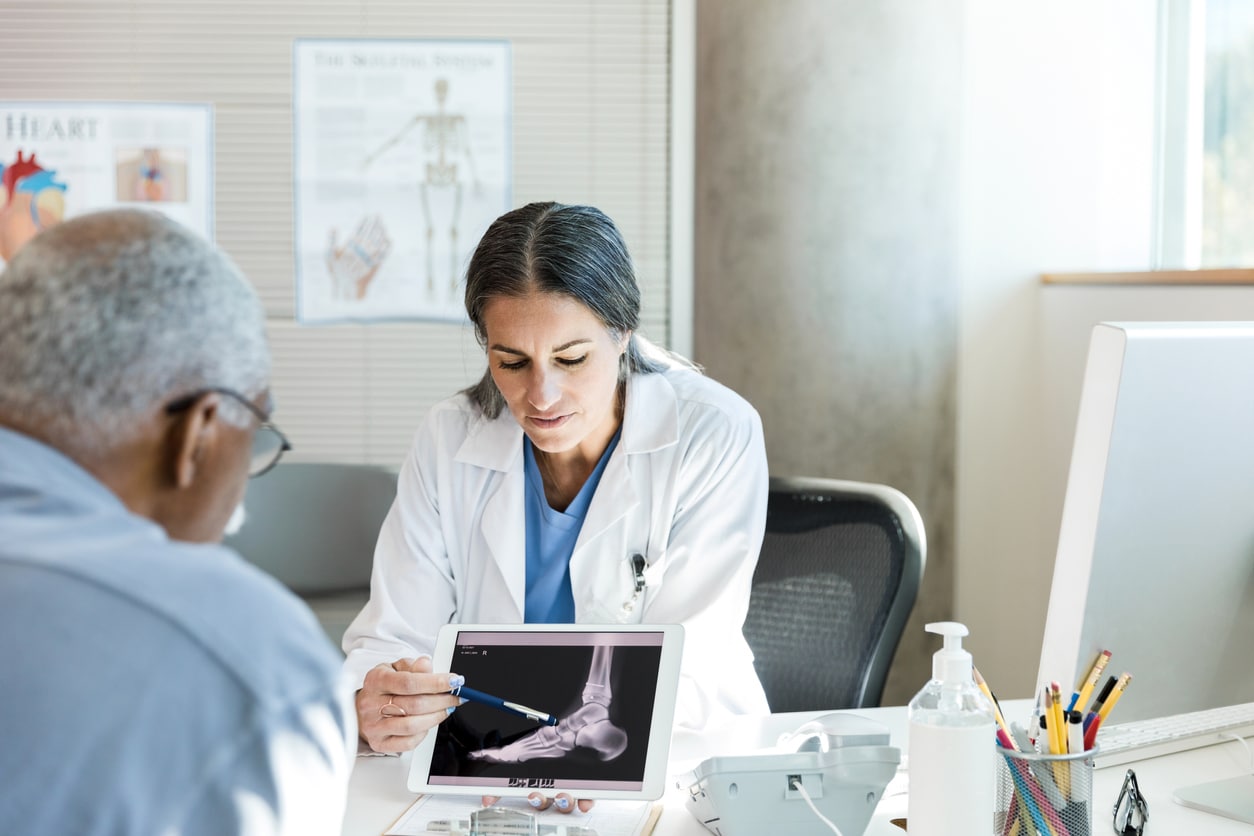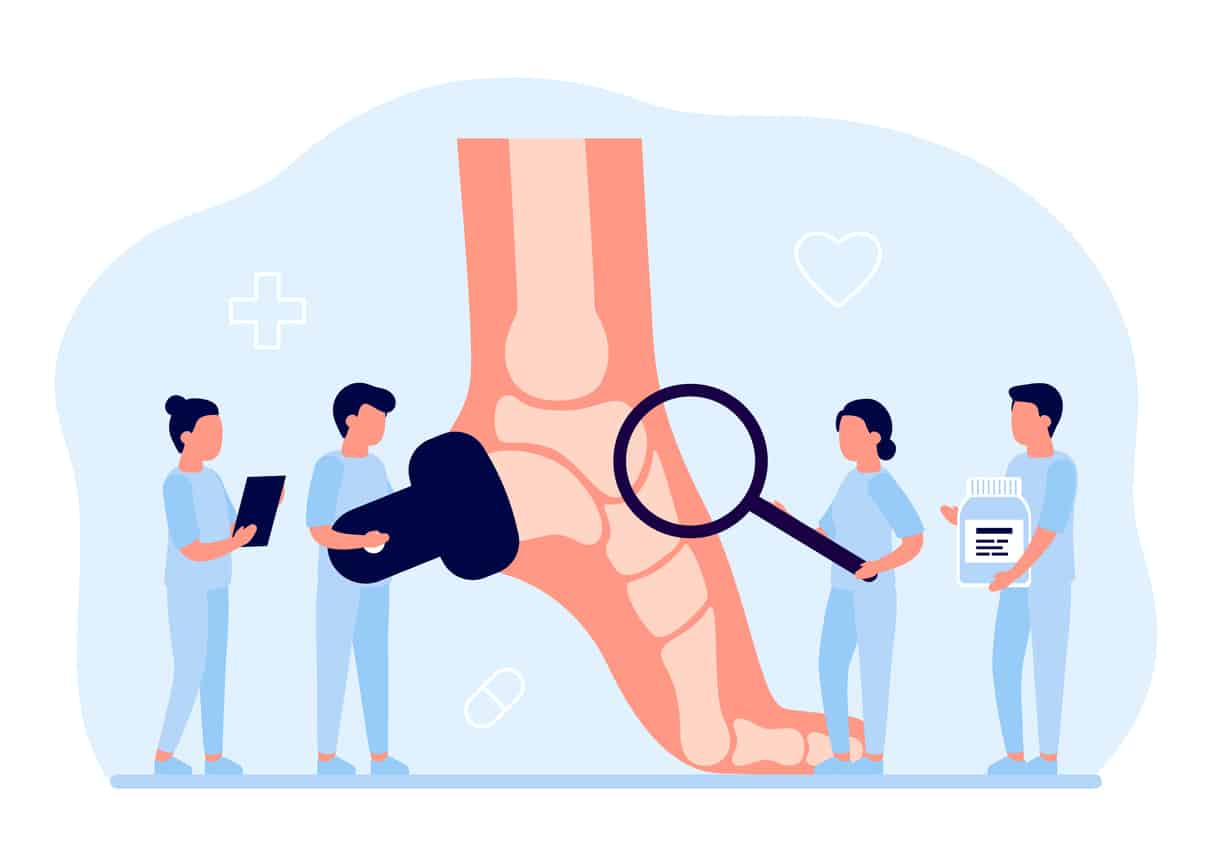Fracture Treatment
Cameron Hospital provides comprehensive fracture care for patients of all ages. Our orthopedic surgeons have expertise in the diagnosis and treatment of fractures, from simple breaks to complex injuries involving multiple bones. We consider both non-operative treatments such as casting and bracing, as well as surgical methods like fixation with screws or plates when appropriate. Our team is dedicated to providing high-quality care that reduces pain and gets you back to your regular activities as quickly and safely as possible.
What is a Fracture?
A fracture is a broken bone. It can happen when too much force is applied to a bone, such as during a fall or car accident. In some cases, it also occurs due to weakened bones caused by certain medical conditions like osteoporosis. Fractures can range in severity from minor cracks to severe breaks that involve multiple pieces of bone.
Open (Compound) Fractures
Open fractures occur when the broken bone pierces through the skin, leaving an opening directly to the fracture site. This type of fracture typically requires surgery and can be more prone to infection than closed fractures.

Closed (Simple) Fractures
Closed fractures, or simple fractures, occur when the broken bone does not break through the skin and is instead protected from external contaminants by the surrounding tissue. This type of fracture may be more stable than an open fracture, but it still requires prompt medical attention for proper healing.
Complete Fractures
A complete fracture is a severe form that involves a full break in the bone and typically necessitates surgery to fix it. Nails, plates, rods, and screws are often used to hold pieces of bones together while they heal.
Incomplete Fractures
An incomplete fracture, also known as a greenstick fracture, occurs when the bone does not break completely and instead only cracks partially on one side. These fractures typically have a better prognosis because they tend to require less invasive treatments and usually heal more quickly than complete fractures.

Signs and Symptoms of Fractures
It is important to be aware of the signs and symptoms of a fracture, which can help alert you to seek medical attention quickly. Common symptoms of fractures include:
• Swelling and tenderness around the injured area
• Bruising or discoloration of the skin near the injury site
• Pain that increases with movement or pressure on the affected area
• Loss of range of motion in a limb
How is a Fracture Diagnosed?
At Cameron Hospital, our team of specialists will conduct a physical examination and review your medical history to make an accurate diagnosis. After assessing the area, we may order imaging tests such as X-rays or CT scans to get a better look at the affected area and determine the extent of the injury.
What is the Treatment for a Fracture?
The type of treatment for a fracture depends on its severity. Non-surgical treatments may include wearing a cast or splint to immobilize the affected area while it heals, taking pain medications, and using ice packs or heat therapy. Surgery may also be necessary for more severe fractures–this can involve using metal plates and screws to hold pieces of bones together while they heal.
Cameron Hospital specializes in the surgical repair of fractures. During the surgery, our surgeons will realign the broken bones and use hardware, such as nails and screws, to keep them in place as they heal. In some cases, a bone graft may be necessary to replace lost tissue or fill gaps between pieces of a broken bone. Following the surgery, our team will provide you with post-operative instructions on how to properly care for your fracture to ensure it heals properly.
Casting and splinting are non-surgical treatments for fractures that involve immobilizing the broken bone with a cast or splint. This helps the bones heal in proper alignment, reducing pain and allowing for proper healing. Our team of experts will create a custom cast or splint to fit your fracture and provide you with instructions on how to properly care for it while it heals.
Rehabilitation may be required as a crucial step to ensure your fracture heals properly and your injury does not recur. Our rehabilitation experts will work with you following your treatment to build strength, increase your range of motion, and improve function in the affected area. This will help you regain full use of the injured area and return to normal activities as quickly as possible.
Treating Fractures with Cameron Orthopedics
At Cameron Hospital, our team is dedicated to providing you with high-quality care for any fracture. Our experts diagnose fractures using advanced imaging techniques, such as X-rays and MRIs, to determine the extent and type of fracture before devising an individualized treatment plan. We also provide comprehensive follow-up care to make sure your recovery is successful. If you suspect that you have a fracture, contact us today to set up an appointment with one of our experienced orthopedic specialists.

©2025 Cameron Memorial Community Hospital
416 E. Maumee Street, Angola, IN 46703
